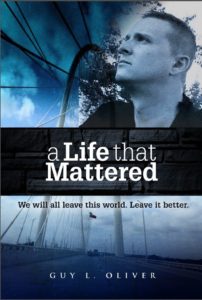So many things preceded the storm. Things I haven’t mentioned. Things, the details of which seem so unimportant given my retrospective view, which forces me to evaluate what matters and what, ultimately, does not.
 The night Tim took his mother’s car, and challenged a friend to a race that ended with a care flight and a fractured vertebra, and which should have ended his life, but didn’t. The St. Patrick’s Day that same year, on which, unsupervised, all three children left the house with the dog to visit a friend, on a night, black as pitch. An innocent driver who was simply taking her family home didn’t see the family pet who ran into traffic striking her as my children looked on with no adult to assist them, save the attending police officer.
The night Tim took his mother’s car, and challenged a friend to a race that ended with a care flight and a fractured vertebra, and which should have ended his life, but didn’t. The St. Patrick’s Day that same year, on which, unsupervised, all three children left the house with the dog to visit a friend, on a night, black as pitch. An innocent driver who was simply taking her family home didn’t see the family pet who ran into traffic striking her as my children looked on with no adult to assist them, save the attending police officer.
Time after time, event after event, I begged my children’s mother to let me have temporary custody, thinking that maybe, just maybe, their situation might have somehow been better—safer. Less fraught with chaos. The truth is, though, that I can’t know that it would have been better for my children and I therefore do not blame my ex-wife for refusing to give me custody, even if briefly.
All these things and more. These are just some of the things I have revisited countless times repeating the words “if only…” but, which, I instinctively know ultimately don’t matter. And thus, with each lament, I remind myself that, to suggest a different course would have changed the destination is, by definition, a fruitless exercise. In so remembering, I have the luxury of accepting the notion that my wife did everything in her power to be the best mother she was capable of being—despite my perspective at the time.
“…but the roar of its impetuous ebb to the sea is scarce equaled by the loudest and most dreadful cataracts; the noise being heard several leagues off, and the vortices or pits are of such an extent and depth, that if a ship comes within its attraction, it is inevitably absorbed and carried down to the bottom, and there beat to pieces against the rocks; and when the water relaxes, the fragments thereof are thrown up again. But these intervals of tranquility are only at the turn of the ebb and flood, and in calm weather, and last but a quarter of an hour, its violence gradually returning.”
– Excerpt A Descent Into the Maelstrom
Edgar Allan Poe
I can think of no better description of addiction and the addict. A ship too close to a violent vortex that draws it in with a quiet, seductive gesture, like a beautiful Siren calling to the coxswain at the helm of a ship. Once he has succumbed, the ship becomes trapped along with all passengers and crew and nothing save God himself can prevent the coming destruction.
So it is with the addict. As he answers the Siren’s song, he threatens to bring not only his own life to ruin, but the lives of everyone he touches. Many times in very small ways, a little at a time like a cancer that goes unnoticed until it has metastasized and it is finally noted in the diagnosis that no organ has been untouched. And like the Maelstrom in Poe’s story, it is already too late by the time the diagnosis has been rendered.
The little things. It always begins with the little things.
In my 30s I had a fascination with the life of Marilyn Monroe. I was struck by both her celebrity persona and the frightened child who sought only to escape the dread of an abusive, neglected childhood, Norma Jean Baker.
Perhaps it was so much of my mother I saw in her. The frightened child who also tried to escape the bonds of abuse and neglect who found in my father the one person she thought could rescue her—although he was every bit as broken as she.
Prior to her marriage to my father, my mother moved to New York City in hopes of landing a Broadway career. A beautiful vocalist, talented dancer, and an outstanding pianist who could not read music and knew nothing about the crushing world of show business. In less than one-year’s time, she returned, defeated in her own mind, to her home in rural Oklahoma, at which time she met my father.
And it was this narrative: the frustrated artist and performer who would never realize her dreams of celebrity and stardom like so many others, victims of an unforgiving industry that uses people up like so much kindling. This is what I saw in Norma Jean Baker, a California peasant who successfully transformed herself into the larger than life persona of Marilyn Monroe.
This fascination took hold in my oldest daughter, Rachel, and was one of the interests we held in common. I saw the humble beginnings of Norma Jean and she became smitten by the glamour of Marilyn Monroe. Together we watched Marilyn’s movies and I spoke with her about the humble origins of Norma Jean.
And during this time, one Saturday morning, my wife woke me, explaining only that it was time to go.
“Go where?”
“Rachel has a performance this morning.”
“I thought she dropped out of dance class.”
“This is a talent show. She entered herself.”
“What?”
“It’s a Marilyn Monroe look-alike talent contest.”
“What?”
“GET UP!”
A few minutes later, cup of coffee in hand, I drove my wife and daughter to Round Rock, Old Town Square, the appointed location. I watched as Rachel took the stage clad in a pair of tap shoes, a polka dot dress, and a cheap wig we had purchased last Halloween.
“Oh my God.” was my only thought. A shy, introverted child on stage about to perform a tap dance routine to who knows what. Dutifully, I stood by and waited for the horrible crash I knew was coming.
The Emcee announced the piece, “Diamonds Are a Girl’s Best Friend.” Burying my head in my hands I stood in the back and waited. Waited for the moment she would come rushing off the stage in tears.
And then, the music began. I immediately noticed something wrong with the tempo. It was too fast, and the music was in the wrong key.
I looked up in amazement as my little 14 year-old girl owned that stage. I watched as she put on a flawless performance of an avant-garde tap dance routine she choreographed with assistance from no one. It was all her. The entire performance, from concept to execution belonged to Rachel.
Stunned, I continued to watch as she took first place. It was one of those rare moments in which mere words fail to describe the parental pride that takes a back seat to accolades for the child in her moment.
The prize list was long and lavish and among the awards was a bottle of Marilyn Merlot. A wine that probably was terrible but it was hers. A tiara, a sash, a gown, and a bottle of wine with a fitting label. These were her trophies.
Yet it was not the trophies that mattered. It was what the trophies symbolized. A moment that can never be taken away, or so she thought.
One night, many years later, as Rachel slept alone in her bedroom, Tim, who had run out of alcohol, crept into her room, took the bottle off her bookshelf, opened it, and emptied it into his gullet.
As a parent, I need for you to sit with that image for a moment.
A precious memory tossed aside like so much rubbish, for what? A cheap high? You violated your sister’s memory to prolong your drunkenness for a couple of hours.
I spoke with her about the incident years later after she moved in with my wife and me after I remarried. Her commentary was rather simpler than I imagined.
“I felt as though I didn’t matter—at all. I felt like I was a thing, an object living in a shell of a house.”
As angry as I wanted to be with my son after the fact, and as angry as I was with myself for not being there to protect my daughter from him, I knew the truth. This was not my son. This was the addiction taking hold. There had been rumors of hard drugs but the drinking was well-known and well-documented.
This is what addiction does to people. It transforms them into creatures we don’t recognize. It was not my daughter who was the thing. My daughter was not the discarded object she felt she was. It was my son’s addiction, which could not be abated, that was the terrible thing worthy of scorn. And it was a thing that could not be stopped.
He had been seduced by the Sirens of substance abuse. The Maelstrom held his very being in its clutches, and the ship began the slow descent toward the rocks below. And everyone was vulnerable.


